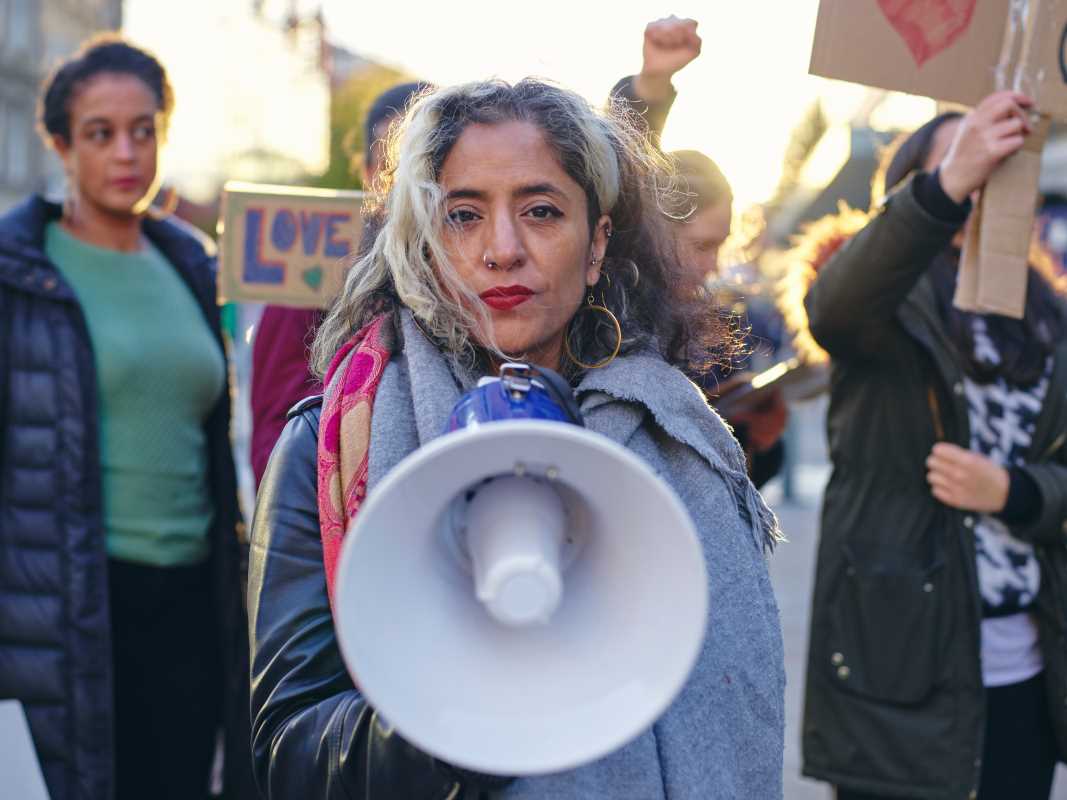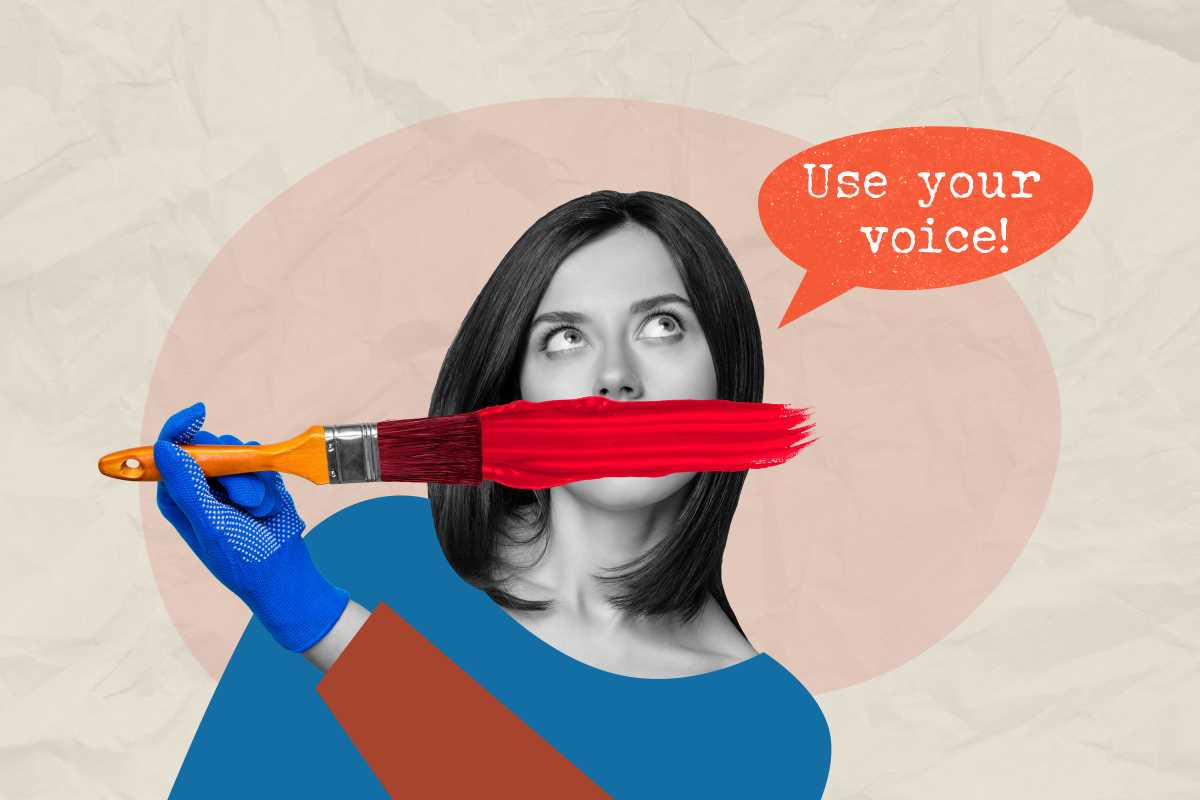Social media isn’t just a place for selfies and memes anymore. It’s become a powerful platform for debates, where people clash over everything from politics to pop culture. For Gen Z, who’ve grown up scrolling and swiping, these debates are a key part of how they learn, form opinions, and take action. But not all voices online carry the same weight. Amid the noise, there are a handful of individuals who stand out as effective debaters. These people are skilled at breaking down complex ideas, encouraging meaningful conversations, and connecting with younger audiences.
But what makes a debater truly effective online? Is it their ability to argue flawlessly? Their knack for connecting with people? Or maybe their ability to simplify tough issues so that they actually make sense? Let's explore how some social media debaters are shaping Gen Z and understand why their influence reaches so far.
The Rise of Social Media Debates
Before we talk about the debaters themselves, it’s important to understand how debates have evolved on social media. Platforms like TikTok, Instagram, Twitter, and YouTube have created spaces where anyone can voice their opinions. For Gen Z, this access to diverse perspectives is both empowering and overwhelming.
Social media debates often differ from those in traditional settings, like classrooms or political stages. Here’s how they stand out:
- Speed and Reach: Debates spread rapidly thanks to shares, likes, and trending hashtags. A single post can reach millions of people in hours, making social media debates fast-paced and high-stakes.
- Multimedia Content: Visual tools like videos, infographics, and even memes are used to support arguments. This makes debates more engaging but often less formal.
- Audience Participation: On social media, the audience doesn’t just watch debates unfold; they take part in them. Comments, replies, and duets allow anyone to weigh in.
With these dynamics at play, it’s clear that those who succeed in sparking meaningful conversations online need a unique set of skills.
What Makes an Effective Social Media Debater?
The best social media debaters do more than just argue their point. They create discussions that are thought-provoking, accessible, and impactful. Here’s what sets them apart:
Clarity Over Complexity
The digital age has shortened our attention spans, so a good debater understands the importance of keeping things simple. They avoid jargon and break down their arguments into bite-sized pieces, making tough topics like climate change or systemic inequality easier to grasp.
Empathy and Respect
The internet can feel hostile, especially when topics are divisive. Effective debaters maintain a sense of empathy, treating opposing views with respect. This often makes them more relatable and trustworthy.
Passionate but Grounded
Passion is important, but it needs to be backed by facts. The most influential social media debaters share evidence-based opinions while speaking with conviction. This balance keeps their audience engaged without making them seem overly emotional.
- Creative Communication
Social media isn’t all text. Effective debaters know how to use everything from storytelling to animation to support their points, ensuring their message sticks in people’s minds.
With these qualities in mind, let’s take a closer look at a few modern influencers who exemplify what it means to be strong, impactful social media debaters.
Voices Shaping Gen Z
From progressive advocates to conservative voices, here are some leading figures and their impact on Gen Z discourse.
Hassan Minhaj
Hilarious, bold, and unapologetically political, comedian and commentator Hassan Minhaj excels at turning complex topics into digestible stories. Through platforms like YouTube and Instagram, Minhaj mixes humor with hard-hitting truths about systemic racism, immigration, and more.
Hassan connects with Gen Z by speaking their “language”: memes, jokes, and storytelling. Beneath the laughter, his message remains clear, making important issues relatable without losing depth.
Dean
Dean is a popular TikTok creator and political commentator known for his progressive views on equity, the environment, and economic justice. Through brief but impactful videos, Dean breaks down complex policies and societal structures, bringing clarity to younger audiences. He is particularly effective at weaving personal experiences and empathy into his arguments, making topics like climate change and wealth inequality both relatable and urgent.
What sets Dean apart is his ability to inspire action within his audience. He doesn’t just share opinions; he actively encourages viewers to volunteer, protest, and vote. For many Gen Zers eager to see systemic change, Dean personifies the energy and determination of their generation.
Parker (@parkergetajob)
Parker is another TikTok powerhouse, but his approach represents a different side of the conversation. With a focus on debate and free speech, Parker tackles polarizing issues such as educational reform, healthcare, and wealth redistribution. Known for his sharp wit and straightforward style, Parker often engages directly with opposing views, creating a dynamic that’s both educational and engaging.
What makes Parker’s content resonate is his ability to remain calm and measured, even when faced with heated debates. This makes him a popular figure among those in Gen Z who value thoughtful dialogue over divisive rhetoric. By focusing on rational conversations, Parker challenges his audience to think critically about the issues at hand.
Candace Owens
On the other side of the political spectrum, Candace Owens is a polarizing but undeniably influential voice on platforms like YouTube and Twitter. Known for her bold takes on politics and culture, she pairs confident public speaking with carefully constructed arguments.
While some find her views controversial, Owens engages audiences by framing her arguments with clarity and precision. Her ability to spark heated yet dynamic debates makes her stand out in the crowded online space.
John Green
While best known as an author, John Green has become a voice for social progress on platforms like YouTube and TikTok. Through his educational channel, “CrashCourse,” and his commentary on current events, he makes topics like healthcare reform, economics, and mental health easy to understand.
Green is particularly impactful because he approaches conversations with humility and thoughtfulness. His balance of humor, patience, and curiosity resonates deeply with Gen Z, fostering genuine conversations rather than surface-level debates.
Nina Turner
A prominent political activist, Nina Turner uses platforms like Twitter and Instagram to advocate for progressive policies and social justice. Her posts often combine data, humor, and personal anecdotes to break down intimidating policy discussions.
Turner shines because of her ability to stay grounded. She doesn’t lecture her audience; instead, she invites them to join her in questioning existing systems. Her relatable approach ensures that even complex ideas resonate with younger audiences.
John Doyle
John Doyle is a well-known YouTube host who delivers content with a conservative edge, often focusing on topics like election integrity and American values. His discussions on the 2020 election results have garnered considerable attention, tapping into a segment of Gen Z that views traditional ideals as worth preserving.
What sets Doyle apart is his unapologetic and confrontational delivery, which appeals to those drawn to energetic and fearless debating styles. While his rhetoric is polarizing, it evokes loyalty from his base. For young conservatives, Doyle’s material serves as affirmation of their worldview while challenging Gen Z progressives to engage in ideological conflict.
Daniel Harris (The Rageaholic)
Daniel Harris, known online as “The Rageaholic,” is a streamer whose debates lean into controversial topics and bold opinions. From discussions about the January 6th Capitol attack to critiques of perceived media biases, Harris doesn’t shy away from contentious issues. His energetic, often theatrical approach has earned him significant attention, particularly among viewers who enjoy emotive and unfiltered commentary.
Harris exemplifies the power of passion in online debates. Though divisive, his willingness to tackle taboo topics and criticize mainstream narratives creates a space where like-minded individuals feel represented. For Gen Z audiences, Harris is both a polarizing figure and a testament to the enduring appeal of high-stakes, emotionally charged debate.
Victoria Hammett
Victoria Hammett is a Los Angeles-based influencer and deputy executive director of Gen-Z for Change, an advocacy organization that amplifies youth voices on social issues. Hammett is particularly vocal about topics like Medicare for All and other key policies she feels deserve attention. Her focus on progressive causes has made her a prominent figure among young activists.
Hammett’s debating style is clear and uncompromising, often pairing facts with candid critiques of political leadership. She uses platforms like TikTok to draw attention to policy gaps, engaging her audience in discussions that extend beyond surface-level awareness. Her efforts highlight the importance of creating unified pressure, encouraging individuals to challenge failed systems.
Hadley Duvall
Hadley Duvall is a college senior who leads pro-abortion rights advocacy on her conservative campus, making her work both impactful and challenging. Duvall exemplifies how Gen Z can take activism offline and lead movements in person while still leveraging social media to amplify their voice.
Her ability to address one of the most divisive issues of our time—reproductive rights—with poise and clarity is what makes her stand out. Duvall strategically bridges her campus dialogue with broader discussions on platforms like Instagram, inspiring other young people in traditionally conservative spaces to advocate for change without fear of backlash.
Morgan Reece
Counterbalancing Duvall’s advocacy work is college senior Morgan Reece, who is spearheading the anti-abortion movement on her predominantly liberal campus. Reece uses social media to rally her community around beliefs often silenced in progressive environments, demonstrating how alternate viewpoints can emerge even in spaces of ideological dominance.
Reece’s debating style is measured and principled. By focusing on her beliefs in the sanctity of life, she frames her arguments in a way that prioritizes ethics and personal responsibility. For conservative Gen Z members, Reece represents courage and the ability to stand firm in one’s convictions, regardless of opposition.
Harry Sisson
Harry Sisson is a familiar face on platforms like TikTok, where his humorous yet insightful takes on political topics resonate with thousands of young viewers. Sisson uses his platform not just for comedy but to engage in meaningful conversations, blending entertainment with education.
Featured on Cheddar’s Politics Special, Sisson is seen as an approachable commentator who simplifies issues like student loan forgiveness, climate policy, and voting rights. His ability to communicate complex topics in a way that feels fun and relatable strengthens his connection with Gen Z, making him an effective entry point for younger audiences engaging with politics for the first time.
How Gen Z Engages with Debaters
Gen Z doesn’t just follow these debaters passively. This generation is known for being vocal and involved. They create their own content, share resources, and challenge ideas they disagree with. Social media debaters often spark dialogues that expand far beyond their original posts.
Activism Through Sharing
Gen Z’s activism often begins with a share or retweet. By amplifying the voices of social media debaters, they help bring attention to larger issues. For instance, hashtags like #FridaysForFuture (coined by Thunberg’s movement) went viral thanks to Gen Z users.
Debating Back
Unlike previous generations, Gen Z isn’t afraid to challenge even the most influential debaters. Whether through comment threads or video responses, they actively participate in shaping conversations instead of just consuming content.
Building Communities
Social media has allowed Gen Z to form online communities that support their values. These spaces often connect people with similar beliefs or offer platforms to broaden discussions started by public figures.
 (Image via
(Image via





